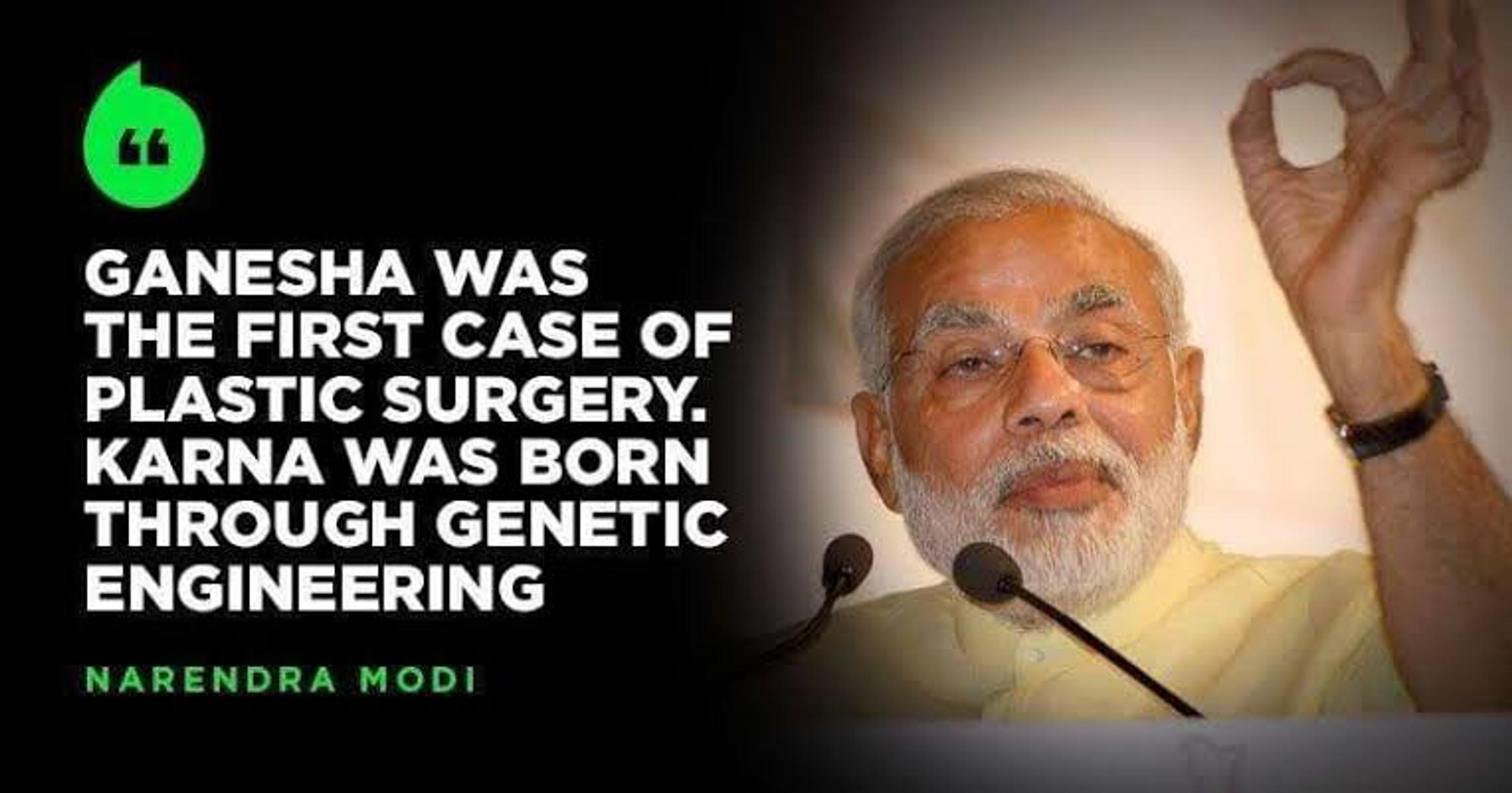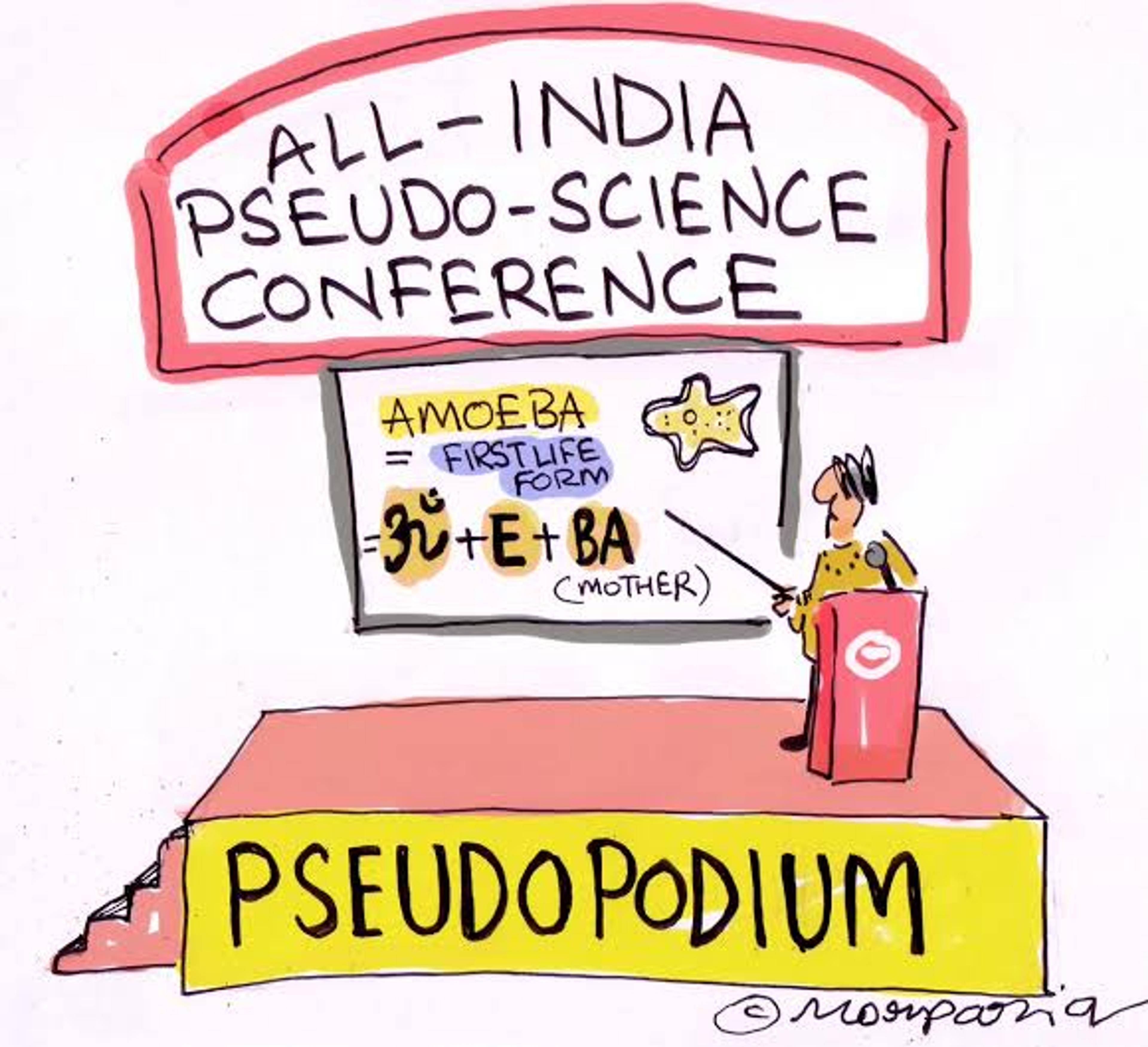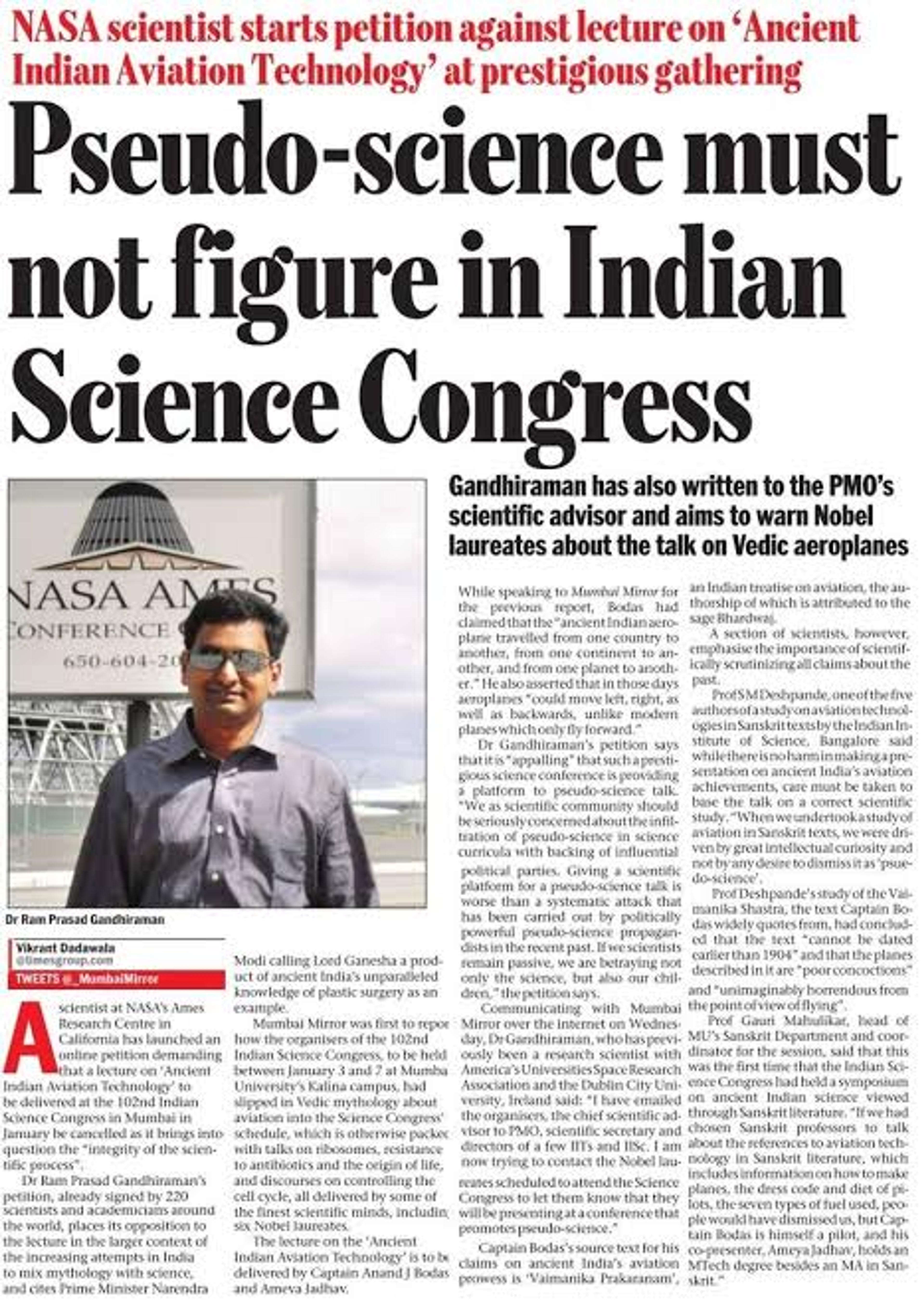Pseudoscience, in simple words, is a system of beliefs and practices that claim to be scientific but are contrary to scientific methods. Pseudoscience in medicine has been a problem for a long time because not only does it teach people to be skeptical of consuming safe medicines, but it also discourages reason and logic, forcing them to rely on faulty and dangerous methods. For example, the anti-vaccine movement targets vulnerable groups of people by misrepresenting the side effects of vaccines and encouraging parents to not give life saving vaccines to their kids.

In India, pseudoscience is well established and firmly rooted in our society. Even though the literacy rate has gone up, a lack of scientific temper and proper knowledge serves as fertile ground for pseudoscience to gain a stranglehold. It is highly popular in India across all regions, religions, and cultures. In 2014, the government established the Ministry of Ayush, which is responsible for developing education, research, and propagation of traditional medicine systems in India. Ayush is a name devised from the names of the alternative healthcare systems covered by the ministry: Ayurveda, Yoga & Naturopathy, Unani, Siddha, and Homeopathy.
On first glance, there is nothing wrong with looking towards the traditional knowledge of our ancient culture. India is a civilization that has contributed much to philosophy, science, and mathematics. However, such traditional and “alternative” medicine systems have been repeatedly debunked, proven to be fraud, and even harmful in some cases. These medicinal systems rely on vague and exaggerated claims without rigorous clinical trials or any evidence backing them. The false dichotomy between “Western” and “Indian” science serves to widen this wishful thinking among millions. The notion that scientific knowledge can be labeled as “Eastern” or “Western” is simply wrong; scientific knowledge belongs to the entire humanity.

These medicinal systems are bad not because they are Indian but simply because they are pseudoscientific. There are several such methods popular in the West too, like Reiki, crystal healing, etc. Accepting that modern methods of medicine that have undergone research and trials are good for health shouldn’t be this difficult. The debate should not be centered on cultural and emotional issues but rather on scientific merits. However, the department of AYUSH has channelized and validated the pseudoscience that was earlier on the fringe.
Pseudoscientific practitioners have been promoted by previous governments too, but the use of pseudoscience has exploded since 2014. AYUSH was declared an official ministry, and its budget has more than doubled in the past years. With this, the narrative of the glorious revival of the ancient culture and a return to the traditional past is given more impetus. However, it is a great misfortune that a government and its ministers, who take their oath on the constitution, do not follow its most basic principles. The constitution says that it is the fundamental duty of every citizen “to develop scientific temper, humanism, and the spirit of inquiry and reform.”
However, the government and the people continue to believe in and propagate medicinal systems that lack any biological plausibility, efficacy, or credible clinical trials. Most of these practices have proven ineffective, and any benefit is attributed to the placebo effect (the idea that you will feel better if you simply believe that the medicine will make you better, even if the medicine is actually an inactive placebo). Despite a lack of pharmacological studies, the ministry continues to peddle unscientific claims like asking pregnant women not to have sex, recommending the herb “giloy” as an immunity booster against COVID-19, or advocating for sham drugs in the cases of dengue, AIDS, diabetes, etc.

Ayurveda is based on poor-quality research and has been criticized for using toxic heavy metals like lead in its medicines. Naturopathy and homeopathy are simply health frauds that deceive people through ineffective, unethical, and potentially dangerous practices. Siddha, a practice popular in South India, and Unani, popular in Muslim culture, are also forms of quackery with no evidence in their favour. However, the fact of the matter is that these pseudoscientific practices are widely popular in India, and no amount of logical debate can convince people of the fraud. People are deeply distrustful of the white-coated doctor and would rather believe in mythical healers. The obsession and fascination with the ancient culture runs deep in our society. The lack of scientific temper and its consequences on society have been terrible, and it’s important that we disregard our long-held opinions and embrace rational thinking.
Gunjit Verma is a student pursuing Chemistry Honours from Jamia Millia Islamia.
Edited by– Ambrisha Zubeen







